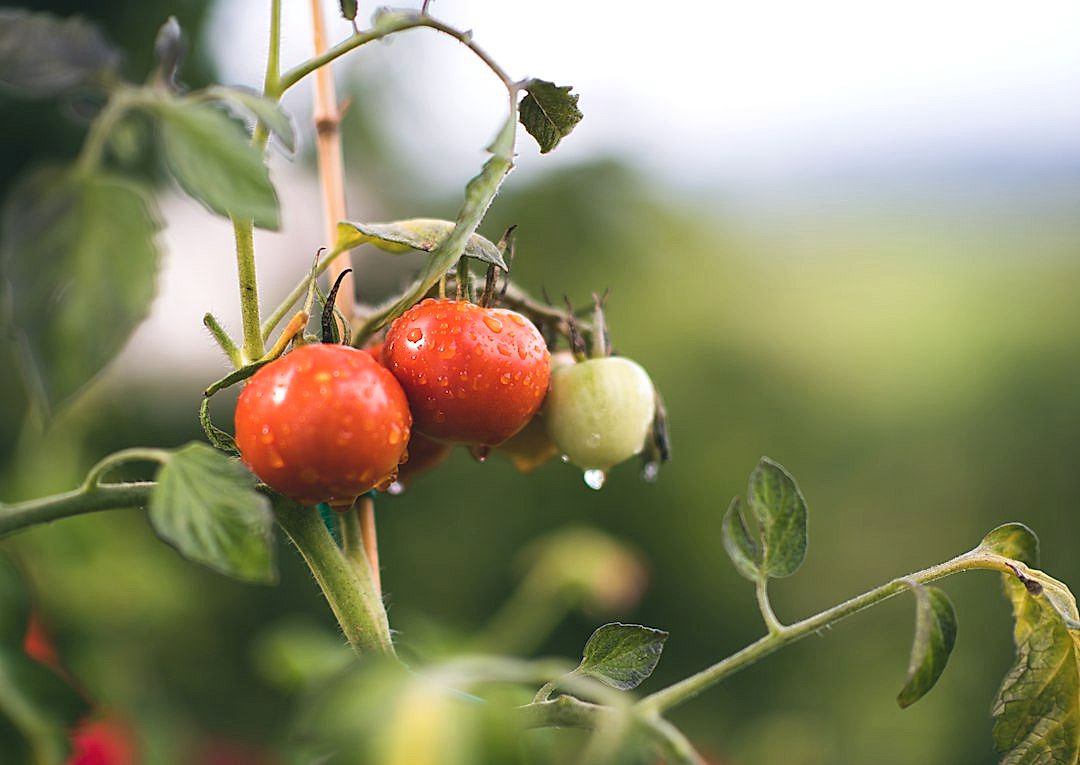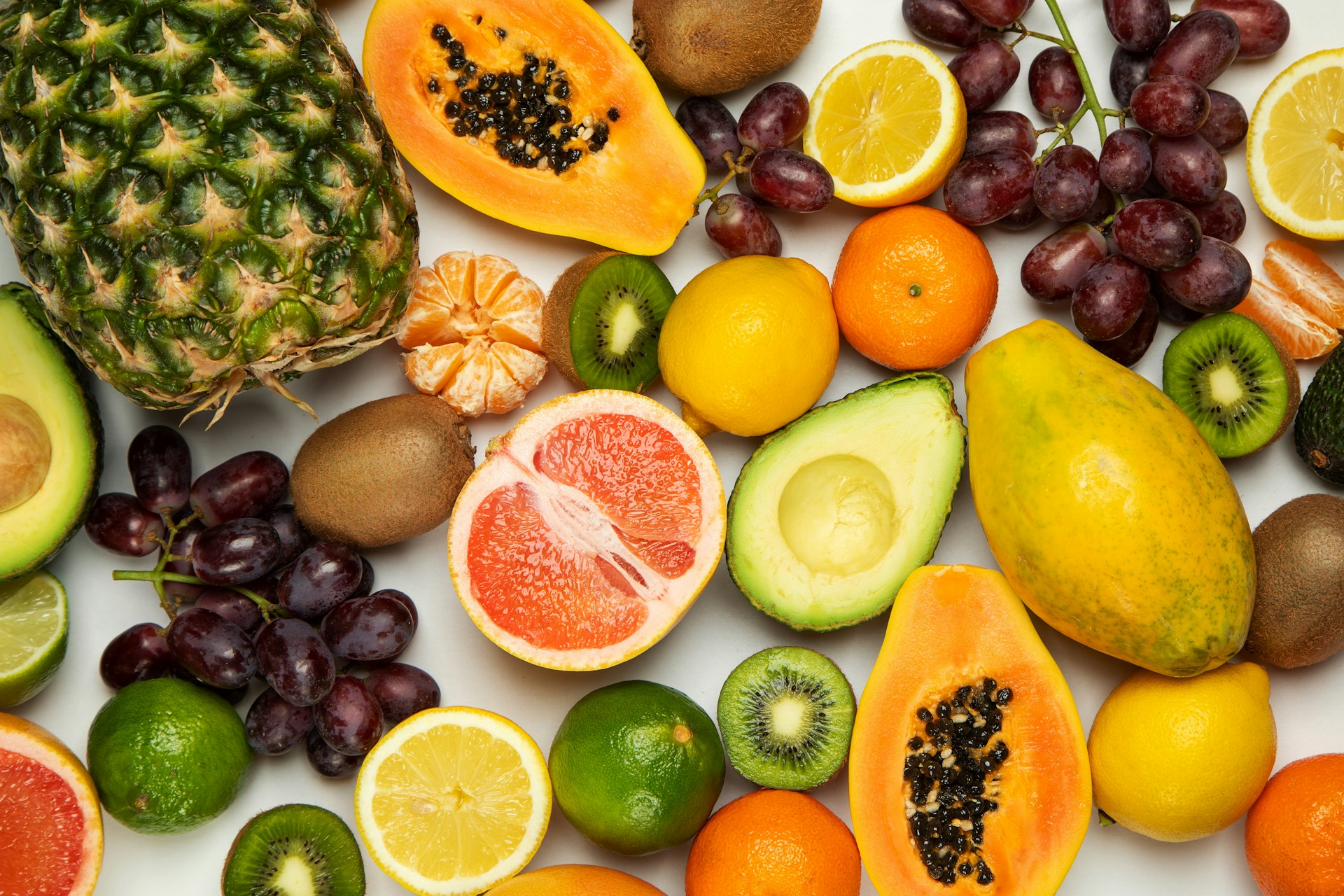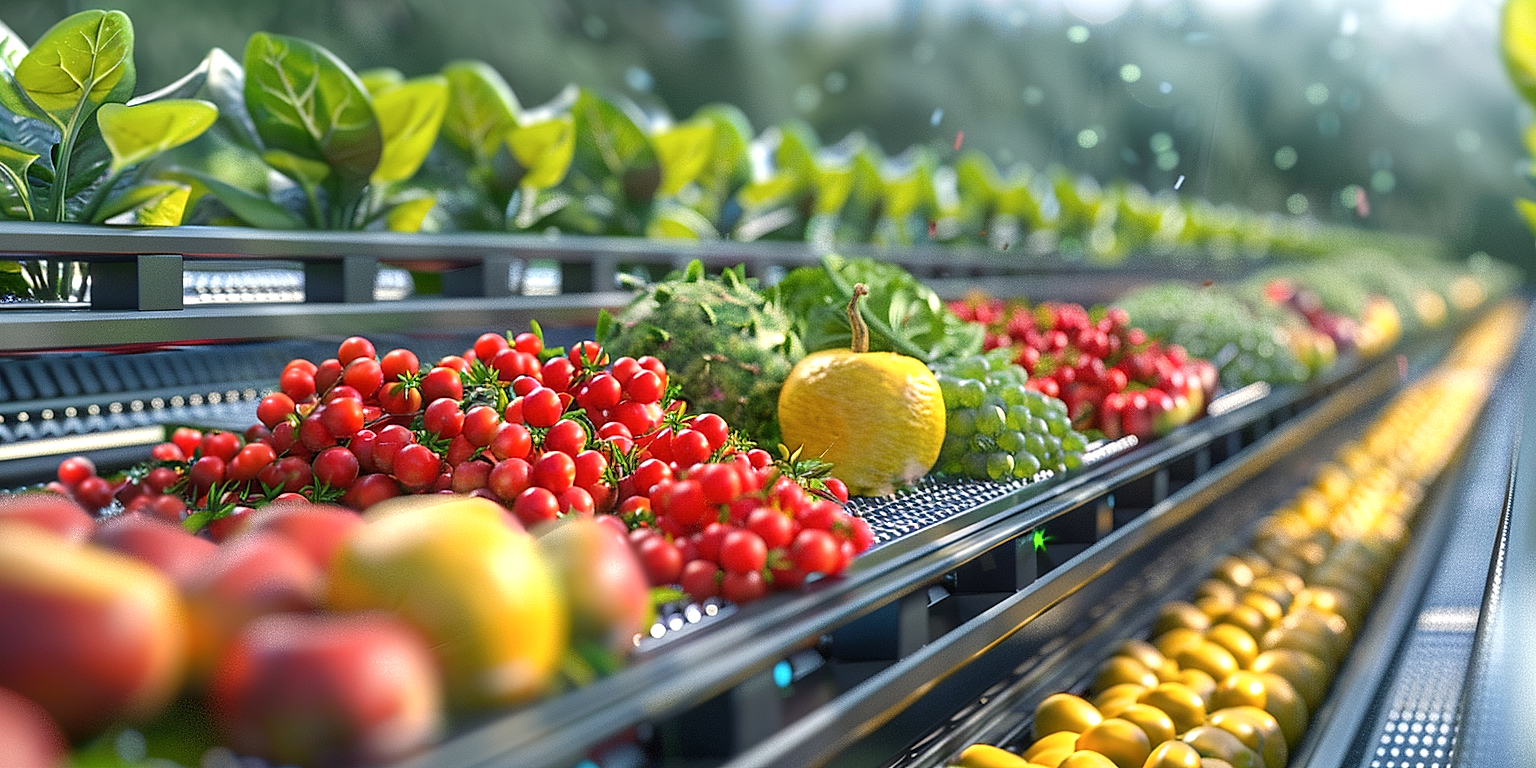The pacesetting trend of organic processing in the agricultural sector continues to reshape the produce industry.
The growing demand for healthful, chemical-free food has led to significant changes in farming and processing practices.
From vegetable fields to the sector of fruits, this organic revolution is making substantial waves.
This article will delve into the latest advancements and trends in organic processing.
It aims to provide a comprehensive overview of evolving methods that are shaping the way we cultivate and consume food.
Stay tuned for an elucidating read on this essential aspect of modern-day agriculture.
Organic Processing Trends In The Produce Industry
1. Increased Demand for Locally-Grown Organic Produce
The organic food industry is experiencing an unprecedented surge, particularly for locally-grown produce.
Driven primarily by health-conscious consumers, there has been a significant increase in demand for homegrown organic fruits and vegetables.
This growing preference for organic, locally produced food can be attributed to the perceived benefits of organic farming on food quality, environmental health, and sustainable development.
Locally-grown organic foods are seen as an important strategy for achieving food security, improving public health, and promoting environmental sustainability.
Organic farming practices such as crop rotation, composting, and biological pest control, are appealing to many consumers as they are perceived to be more ecologically friendly and sustainable.
Such practices decrease soil erosion, enhance soil fertility, increase biodiversity, and reduce the size of the carbon footprint of farming operations.
Agriculturalists who adopt organic farming also contribute directly to local economies, creating jobs and stimulating growth, providing another attractive aspect for consumers.
The concept of food miles – the distance food travels from farm to consumer – has raised awareness about the cost of transporting food in terms of greenhouse gas emissions and energy use.
Therefore, buying locally-grown organic produce not only helps reduce these emissions but also assures consumers of the freshness and quality of their food.
Additionally, consumers are becoming increasingly aware of the nutritional advantages associated with organic food products.
Several studies have revealed that organic produce often contains higher levels of certain nutrients, and are free from pesticides and other chemicals typically found in non-organic foods.
Coupled with the growth of farmers markets and farm-to-table restaurants, this has fostered a local food movement where consumers actively seek out organic, locally-grown produce.
This increased demand has driven many traditional farms to switch to organic farming practices, yielding a positive ripple effect for both local economies and the well-being of the planet.
However, it’s vital to keep in mind that while this surge in demand for organic produce is beneficial, sustaining it will require persistent commitment to sustainable practices from both producers and consumers.
Organic farmers need to continue investing in sound sustainable farming practices and consumers must remain knowledgeable about the valuable impact their organic food choices make on the health of the planet.
2. Using biodegradable packaging for organic items
As part of an overall trend in the organic produce industry, there has been a growing emphasis on the use of biodegradable packaging for organic items.
This trend is driven by the environmental concerns and the push towards sustainability in agriculture and food production.
In response to these concerns, many organic producers have begun to use biodegradable packaging, which can reduce waste and environmental impact.
These materials, which often include cornstarch, wheat straw, and bagasse, are designed to break down naturally in the environment, minimizing pollution.
Importantly, the use of biodegradable packaging is not just a response to environmental concerns but also an opportunity for organic producers to distinguish themselves in a crowded market.
The shift to biodegradable packaging can enhance the brand image of organic products, demonstrating their commitment to sustainability and the environment.
Some organic producers have also incorporated creative solutions such as edible packaging, which further reduces waste and aligns with the ethos of minimizing food waste and maximizing resource efficiency.
This trend also represents an opportunity for innovation in the packaging industry, with many companies now focusing on discovering and developing new biodegradable materials.
There is also an ongoing effort to educate consumers about the importance and benefits of biodegradable packaging, to ensure that the movement towards more sustainable practices in the organic produce industry continues to grow.
Indeed, part of the appeal of organic products is their lower environmental impact, and packaging plays a major role in this.
Therefore, organic producers are keenly aware of the importance of packaging in their overall sustainability strategy and are committed to finding viable, eco-friendly packaging solutions.
Despite the high cost of biodegradable packaging compared to traditional packaging, organic producers see this as an investment in sustainability and the future of the organic industry.
There are also regulations in some regions which require or at least encourage the use of biodegradable packaging, providing further impetus for this shift.
Looking forward, the trend towards using biodegradable packaging in the organic produce industry is likely to continue, driven by consumer demand, innovation in the packaging industry, and regulatory pressures.
Overall, the move towards biodegradable packaging represents a significant trend in the organic produce industry, aligning closely with its core values of sustainability and respect for the environment.
3. Innovation in Organic Waste Management
As we explore the trends in the organic produce industry, one of the significant developments causing a stir is the area of organic waste management.
Organic waste management refers to the process of handling and treating organic residues to minimize their environmental impact, return nutrients to the soil and reduce the need for artificial fertilizers.
In the context of growing and processing organic produce, this means finding innovative ways to deal with plant residues, discard fruits and vegetables, manure, and other organic wastes.
Increasingly, businesses in the organic produce industry are recognizing the value in what used to be thrown away and are leveraging technologies and methods to transform organic waste into valuable resources.
Instead of viewing these residues as waste, many companies are now exploring innovative applications, turning this organic waste into bioenergy, compost, animal feed, or even new food products.
For example, some companies convert organic waste into anaerobic digestion, a process that translates organic matter into biogas.
This gas can either be used directly for heating or can be transformed into electricity or biomethane, an eco-friendly substitute for natural gas.
Another popular technique is composting, which involves turning organic waste into nutrient-rich soil conditioner.
This compost can then be used to enrich the soil in organic farming, closing the nutrient loop and helping to build healthier, more fertile soils.
A more novel approach is insect farming, where organic waste is fed to insects like black soldier flies, which then turn the waste into protein-rich feed for animals.
Finally, some firms are exploring the possibilities of food waste valorization, where discarded fruits and vegetables are turned into new food products, like soups, juices, jams, and more.
These innovation trends in organic waste management are not only helping to reduce the environmental impact of the organic produce industry but are also creating new revenue streams and promoting circular economy practices.
The emerging technologies and techniques in organic waste management offer a perfect illustration of how the organic produce industry is continuously seeking new methods to enhance sustainability and efficiency.
The key to successful implementation lies in the development of a strategic plan that optimizes waste management practices according to the specific context of each company, highlighting the importance of customization and flexibility.
As this area continues to evolve, it is evident that the industry’s future will be shaped significantly by the innovative handling and valorization of organic waste, contributing enormously to the sustainability of the organic produce industry.
4. Embracing Hydroponic Methods for Organic Farming
The hydroponic method in farming is steadily gaining momentum in the organic produce industry.
This innovative method involves growing plants in water instead of soil, with the necessary nutrients added directly to the water.
An apparent benefit of hydroponics is that it eliminates the need for fertile soil, hence areas with poor soil quality can still be viable for farming.
Hydroponic farming also comes with the advantage of making year-round growth of organic produce possible, regardless of season changes.
Moreover, hydroponic methods are typically more water-efficient than traditional farming methods, since most systems recycle water.
By adopting this method, organic farmers can significantly reduce water wastage.
This shift towards more sustainable water practices is not only vital for environmental protection but also enhances the marketability of the organic produce.
Hydroponic systems also tend to have a high production rate, with shorter growth cycles allowing farmers to grow more in less time.
Organic farmers can, therefore, meet the increasing demand for organic produce without resorting to unfair labour practices or overexploitation.
Furthermore, hydroponic farming allows for easier pest and disease control compared to traditional farming methods.
The controlled environment eliminates the need for harmful pesticides, thus, safeguarding the integrity of the organic produce.
While the initial cost of setting up a hydroponic system may be high, the long-term benefits, such as increased yield and decreased water usage, make it a worthy investment.
Embracing hydroponic methods may also open up opportunities for the production of new types of organic produce that were not previously feasible.
In the end, the integration of hydroponic methods into organic farming processes stands out as a remarkable trend in the organic produce industry.
The potential for innovation and growth, combined with its environmental benefits, makes it a promising aspect of the industry’s future.
5. Rise of Organic Ready-to-Eat Meal Services
As consumers become more health-conscious, the demand for organic ready-to-eat meal services has significantly increased.
These services provide nutritionally balanced, organic meals that are conveniently delivered straight to the customer’s doorstep.
This is a trend which is particularly popular among busy professionals and families who value healthy eating but lack the time to prepare such meals from scratch.
Notably, ready-to-eat meal services are aligning with the organic trend, thus providing an enhanced and uncompromised eating experience.
The growing acceptance and popularity of these services are due to the ability to customize meals based on dietary preferences or restrictions, making organic eating more accessible.
Moreover, this development in the industry encompasses a wide range of offerings, from vegan, gluten-free to paleo, and keto diet options, all organically produced.
Another allure of organic ready-to-eat meal services is the transparency in the source of the ingredients.
Customers increasingly prefer knowing where their food comes from, yearning for a direct and trustworthy relationship with their food providers.
More and more companies are responding to these consumer demands by not only offering organic meals but also partnering with local growers and presenting detailed nutritional information.
This reveals a crucial aspect in this trend – the intersection of convenience, wellness, and the increasing need to know the origins of one’s food.
Moreover, organic meal services also address growing concerns about food waste – with carefully portioned meals, there is a significant reduction in food wastage.
Similarly, the packaging involved in these ready-to-eat meals is increasingly taking a greener route.
From using biodegradable or recyclable materials to utilizing less packaging overall, these companies are striving to align their operations with the overall sustainability ethos of the organic food industry.
This proactive approach helps consumers feel aligned with their ideals for healthier planet and a healthier lifestyle.
In terms of market potential, organic ready-to-eat meal services are only projected to grow.
Considering the spike in demand, it’s not surprising that many entrepreneurs and existing food industry players are exploring this burgeoning sector of the organic food industry.
Ultimately, the rise of organic ready-to-eat meal services is a testament to the evolving mindsets and expectations of today’s consumers – who seek convenience without compromising on health or environmental sustainability.
The Bottom Line
Growth, innovation, and environmental consciousness are the defining factors shaping the organic produce industry today.
As consumers increasingly lean towards locally-grown, organic produce, businesses are reacting by implementing sustainable practices such as utilizing biodegradable packaging and fostering advancements in organic waste management.
Modern farming methods, such as hydroponics, are also being incorporated to meet the rising demand.
Additionally, the emergence of organic ready-to-eat meal services signifies a shift towards convenient, health-conscious dining.
These prominent trends underline the industry’s commitment to sustainability and the consumers’ evolving priorities, reflecting the potential for the organic market’s continuous growth and diversification.




